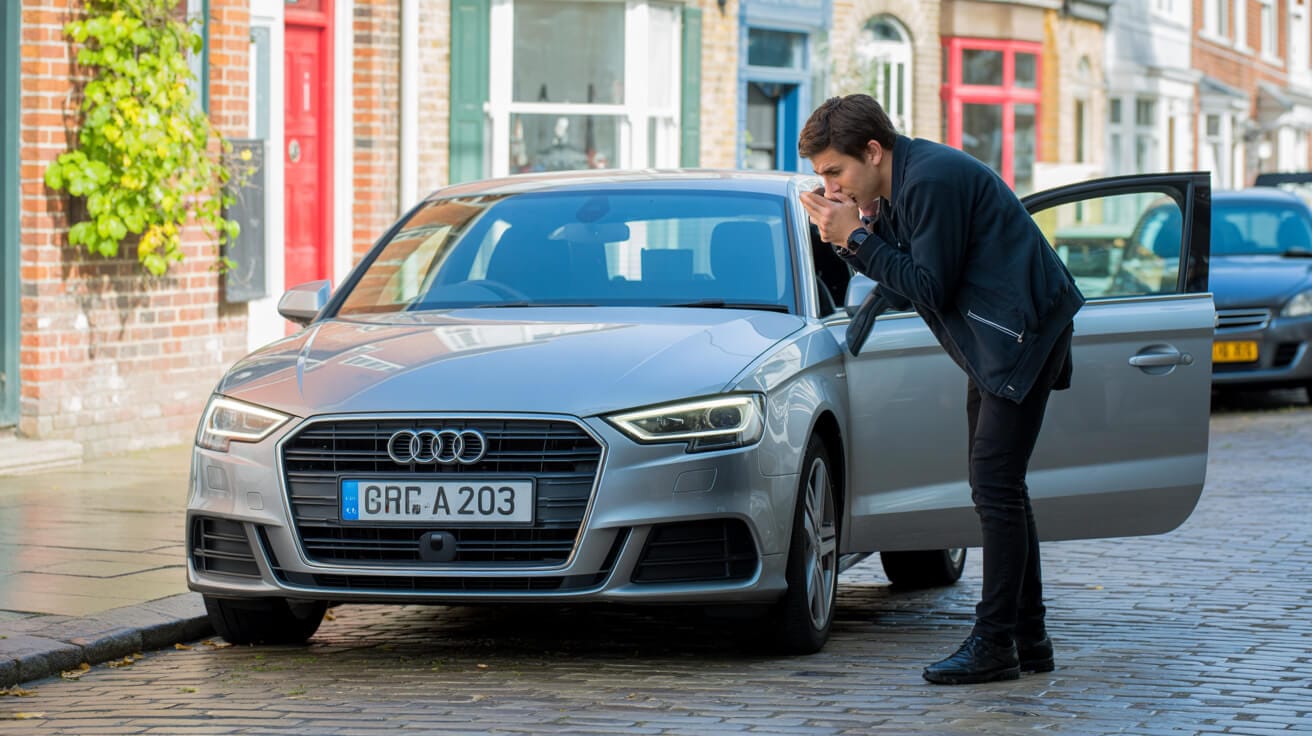Will Your Car Let You In? What If the Fob Battery Fails Completely?
Getting locked out by a dead key fob feels like fate turning, but most UK vehicles are designed with one quiet advantage: a hidden mechanical key, concealed inside the fob, ready for that very moment. This isn’t a relic from the past—it’s your first safety net, bridging modern technology with proven mechanical access, so you’re almost never truly stranded.
If you ever face your locked car with an unresponsive fob, don’t let stress spike. Your next moves are simple. Find the emergency key—usually accessible by sliding a latch or pressing a release on the fob. Then, locate the backup lock cylinder (often discreetly covered), typically on the driver’s door handle. Practice this now—knowing how to use the backup is worth more than any manual when weather and nerves are both against you.
Practical backup beats perfect tech—know your hidden key before you need it.
How Do You Extract and Use the Hidden Key? Could Anything Make This Impossible?
Every late-model fob for UK vehicles secures a backup blade—an elegant, metal experience hiding under a plastic shell. Here’s your playbook:
Step 1:
Find and operate the fob catch (slide, press, or pull—manufacturer varies) to reveal the emergency blade.
Step 2:
Uncover the driver-side door lock—often shielded by a pop-off cap. Carefully pry or slide this cover (practice when calm).
Step 3:
Insert the blade, turn gently, and open the door. If it resists, check for corrosion from lack of use or harsh weather.
But what if the actual blade is missing—lost during a past repair—or the cylinder is jammed solid? Don’t wait until breakdown. If your emergency key isn’t present, or the cylinder doesn’t turn, it’s time to act now. A specialist like Autolocks Ltd can cut a factory-match replacement or service the lock before you find yourself searching for help in the rain.
Won’t Missing Keys or Stuck Cylinders Leave You Totally Helpless?
Can You Actually Start the Car, or Will the Immobiliser (Anti-Theft System) Stop Everything?
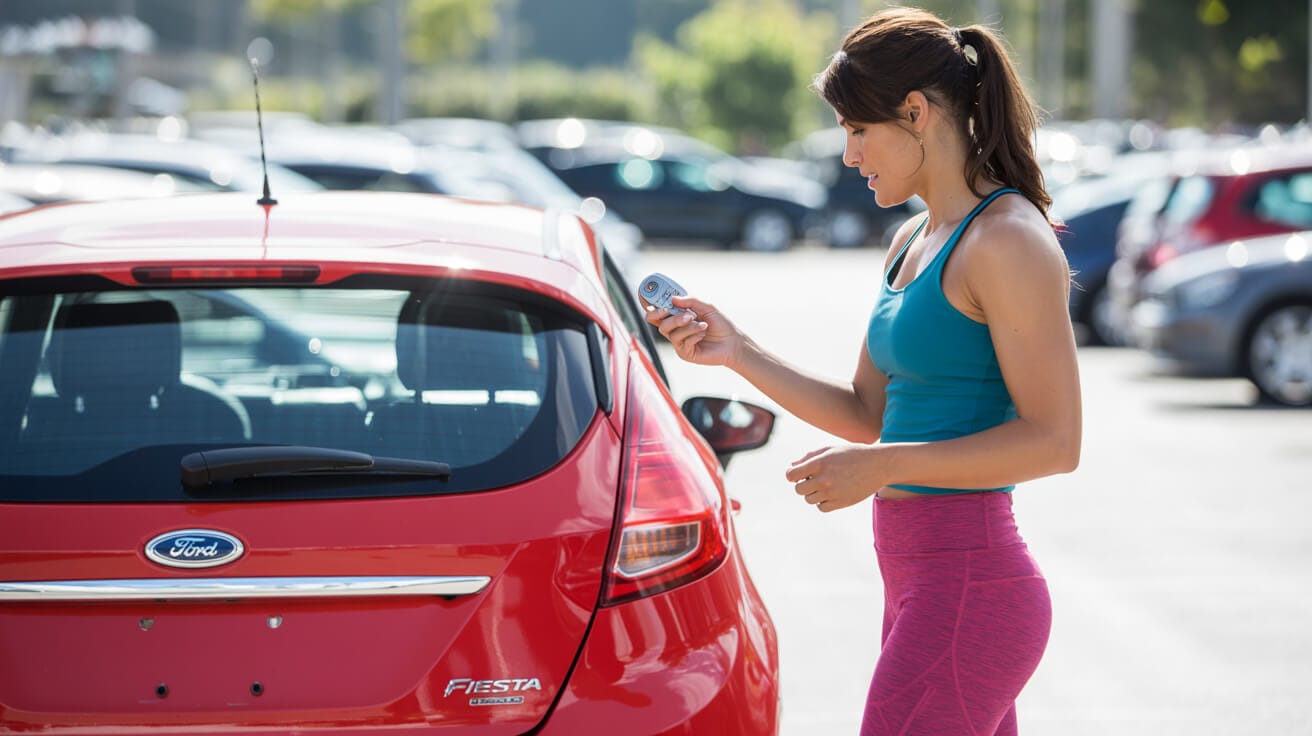
Unlocking the door is just step one. Many drivers freeze at a new message: “Key Not Detected” or a blinking immobiliser warning. Here’s the reassurance—the immobiliser (the electronic security system that disables starting unless an authorised signal is present) often has a backup routine built in. The fob’s battery might die, but the fob itself can still signal the car using an embedded, battery-independent chip.
This is how most UK vehicles work: Hold the dead fob flush to the start button, or slide it into the marked slot or panel (check your owner’s manual for brand specifics). The car’s low-frequency sensor “wakes” the chip inside, authorising the start even with zero power in the fob. Try twice, then let the system rest before repeating—immobilisers can briefly lock out after repeated failures to deter theft.
Your vehicle’s emergency routines aren’t just technical trivia—they’re your ticket home when backup batteries betray you.
What If Neither the Fob nor the Key Blade Saves You?
If the car ignores both your mechanical key and your fob, you’re in a deeper tier of trouble—possible causes include failed wiring (commonly at door grommets), water ingress, or an escalated anti-theft lockout. Don’t keep trying randomly: cycles of failed starts may activate longer lockouts. It’s time for expert help. Autolocks Ltd attends these breakdowns armed with diagnostic tools and compliance procedures to get you moving, while protecting your warranty and data.
Won’t Trying Too Many Times Make the Situation Worse?
Yes—many makes (BMW, Mercedes, Ford) implement progressive delays following failed start attempts. After two or three failed tries, pause for several minutes before retrying. Patience and the right sequence make all the difference. If you’re ever unsure, professional advice beats frustration every time.
Will the Alarm Sound Off? What If You Trigger a Full-Scale Incident?
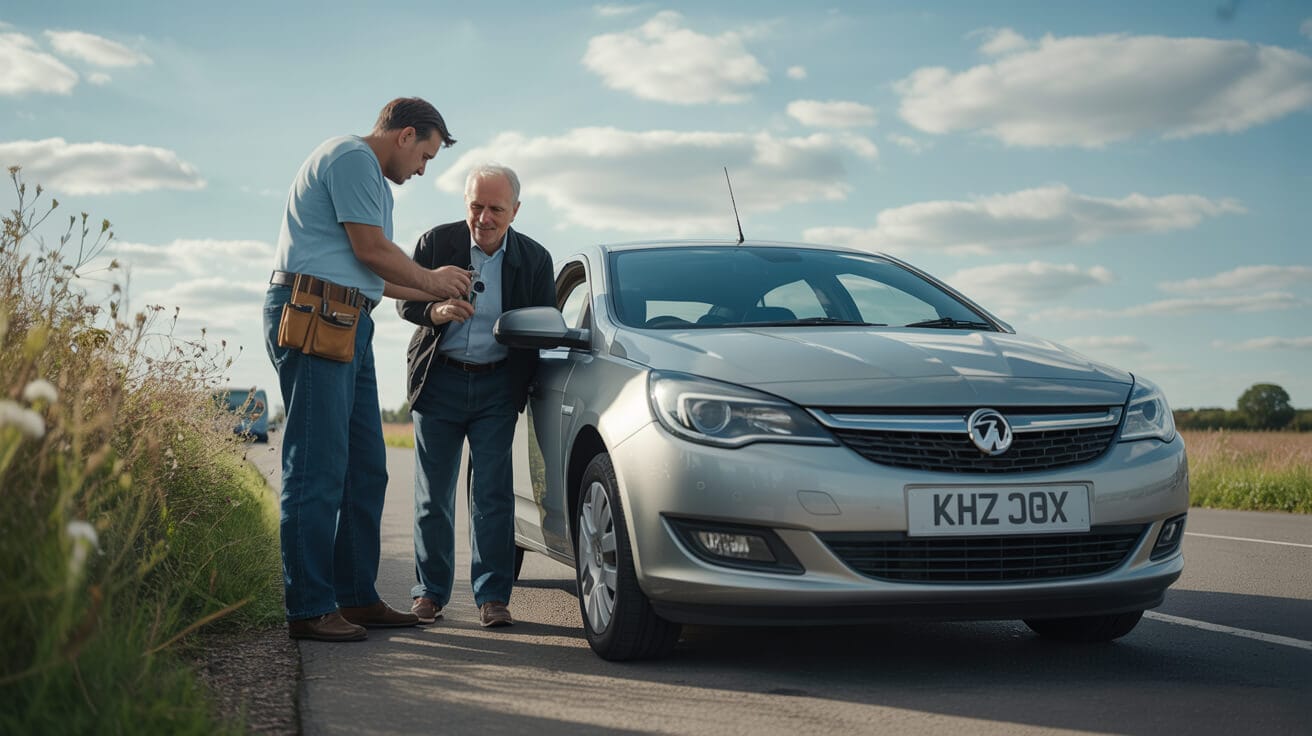
Manual unlock triggers most OEM alarms, signalling a possible intrusion. But before panic sets in, know that the alarm usually stops once the car recognises an authorised start. If the alarm sounds, enter the vehicle, immediately present the fob (even if dead) to the dash or start button, and wait for the system to register—often, silence resumes in under two minutes.
Your car yells to protect you, not to punish you—knowing the reset path keeps you in charge.
What If the Alarm Refuses to Reset or Stays Blaring?
Sometimes, persistent alarms signal a bigger problem: weak main vehicle battery, sensor faults, or network errors. Rather than brute-forcing the system, call in a certified locksmith or technician. Autolocks Ltd can safely silence the alarm, log error codes, and provide proof-grade digital logs—essential for warranty and insurance.
Won’t Reporting Alarm Events Cause Trouble Later?
In the UK, fleet, lease, and business owners are often required to document every alarm trigger. For you, keeping a brief record (or a digital “audit pack”—a set of photos, error codes, and a service log) builds trust with insurers and future buyers. Don’t dismiss alarm moments as mere annoyances—they’re compliance hooks as well as learning cues.
How Reliable Are Digital Keys and Car Apps? What If the App or Phone Dies Unexpectedly?

Smartphone entry and app-based starts put the future in your pocket—but tech can fail. Lost device, flat battery, or app glitches can leave you locked out. UK digital key systems (Tesla, BMW Digital Key, various app-ecosystems) all offer backup credentialing—emergency cards, physical keys, or printable codes—for this reason.
If you don’t set up your physical backups before a trip, the promise of total convenience can dissolve into total lockout. Make backup key issuance a non-negotiable before you rely only on digital.
Tech-only access is a luxury until you lose signal or power. Physical options remain undefeated.
What If Your Device Dies on a Late-Night Journey?
No device, no signal, and no backup? That’s where your pre-packed emergency kit (backup blade, NFC card, or access PIN) saves the day. If you’re caught unprepared, a rapid callout from a compliance-trained locksmith like Autolocks Ltd is your last, best option.
Won’t Digital Key Providers Always Handle Emergencies For You?
Not always, and not instantly. Many digital key systems require a live data connection or access to your verified account. Out of signal or late at night, access is slowed—not solved—by cloud-dependent support.
What’s Legal in the UK? Could You Get in Trouble Using Backup Keys or Emergency Locksmiths?
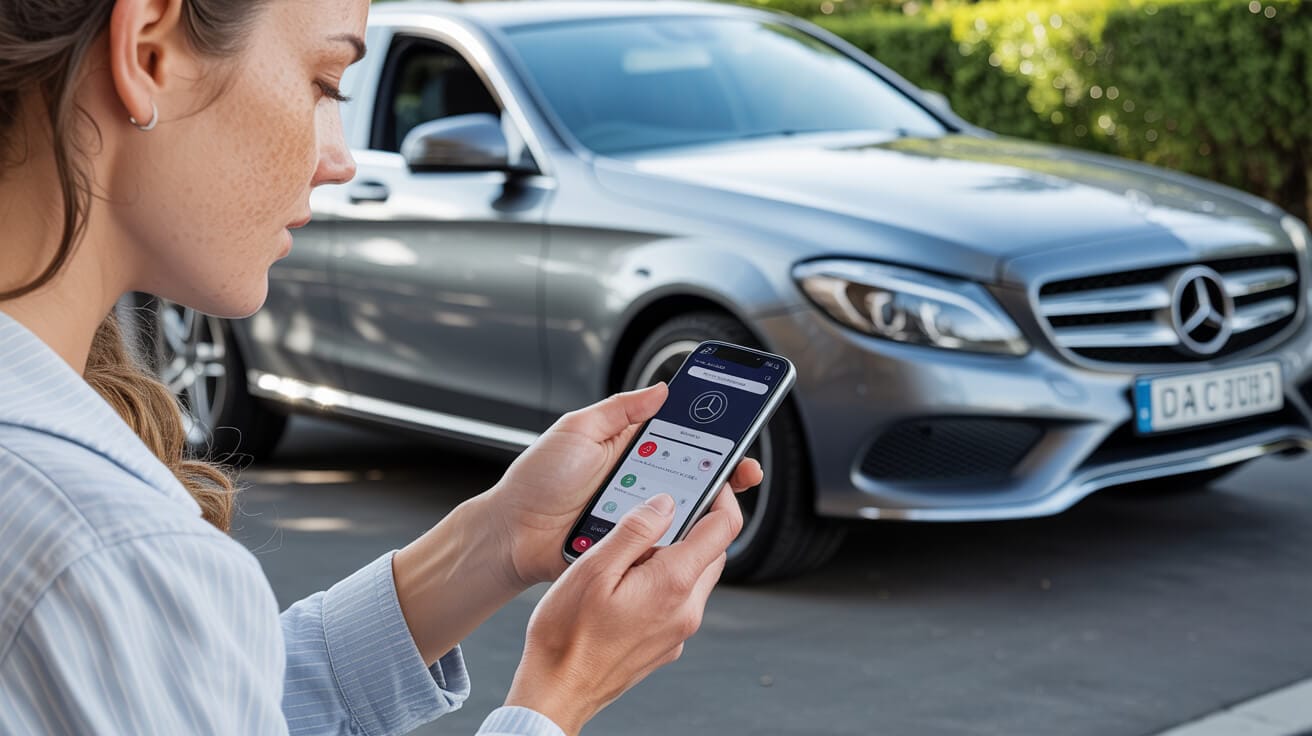
Peace of mind comes from knowing you’re acting within the rules. In the UK, only a vehicle owner or someone with written, documentable consent may authorise a locksmith to gain entry, produce keys, or provision digital credentials. Genuine locksmiths enforce these rules not to hassle you—but to protect both your property and their licence.
Autolocks Ltd, for example, conducts a full ID check and ensures each job is evidenced—photos, job log, and “who programmed what, when.” This is your assurance that every job is both above board and insurance-grade.
Your audit trail is worth more than any fob or lock—keep it up to date and you own your proof.
What If a Locksmith Refuses Service or Asks for Extra Proof?
It may feel frustrating, but a written refusal is your evidence for any claim or complaint. This chain protects you if questions or disputes arise—so always ask for a paper trail when a provider can’t help (or won’t).
Won’t Bending the Rules Speed Things Up?
It could—temporarily. But the future problem isn’t worth the minor time save. Insurers, leasing agents, and police rely on these job logs and the “audit pack” to validate nearly every claim.
What’s Your Next Step If All Standard Backups Fail? Who Really Keeps You Moving?
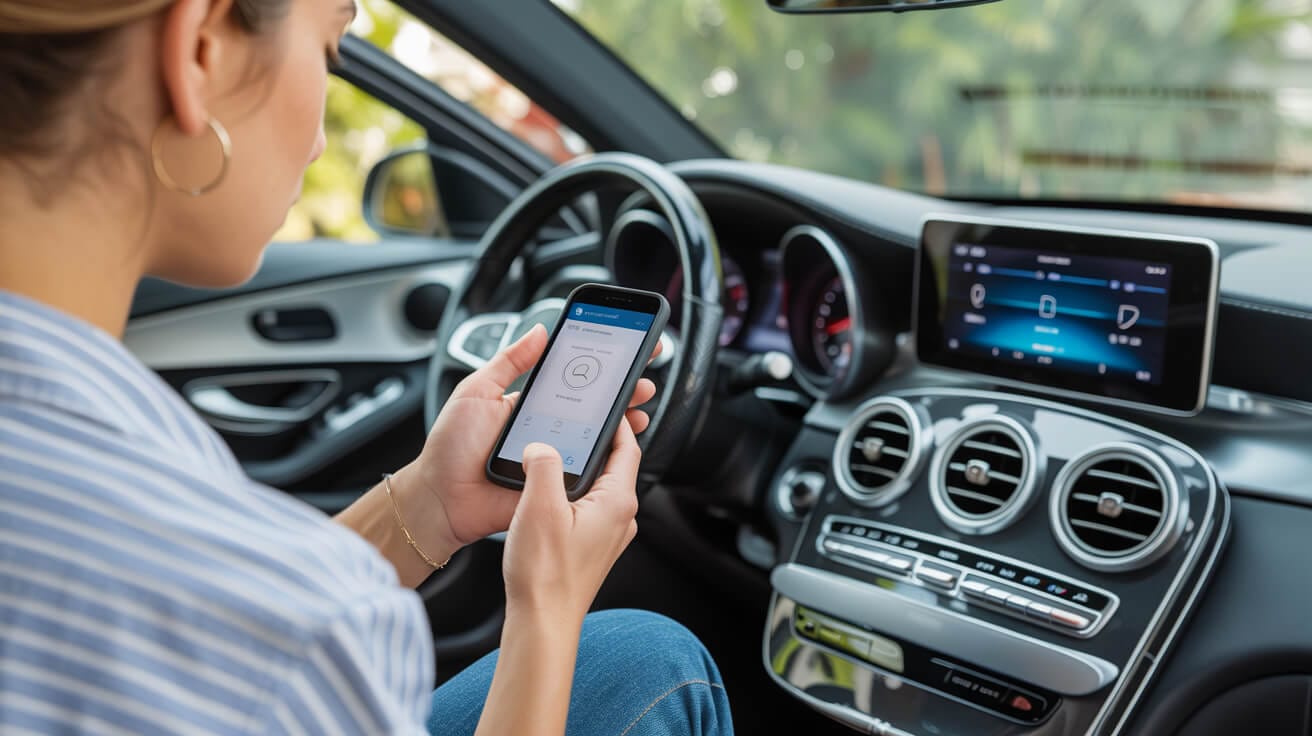
Sometimes you face the total scenario: fob dead, backup key missing, lock jammed, apps offline. Here, the calibre of your breakdown response makes all the difference. Reputable UK locksmiths like Autolocks Ltd don’t just open doors—they leave a digital record: full ID chain, step-by-step job photos, error logs, and tool use—your insurance against all disputes and warranty questions.
Professional documentation fixes problems twice: once on the roadside, then again with claims or compliance.
What If You Need a Proof-Grade Evidence Pack?
Authorised locksmiths begin every job with digital photos (car, keys, documents), scan any diagnostic codes, and note every intervention. This pack—shared directly, securely—gives you the upper hand with insurers, lessors, or police. Think of it as your lockout resilience plan.
Won’t This Take Too Long Compared to an “Off-the-Books” Fix?
In practice, speed outcomes are nearly identical—since most compliance locksmiths pre-pack van and paperwork for efficiency. The difference? You get security, records, and recourse, not just a quick fix.
Could You Avoid Lockouts Altogether? What Simple Habits Keep You Safe and Ahead?

Lockouts are more predictable than most think. By following a simple prevention checklist, you can cut risk down to near zero.
Lockout Risk-Reduction Habits
- Replace fob and backup batteries (CR2032/CR2450) biannually.
- Ensure everyone who drives your vehicle can manually unlock and start it.
- Run an emergency unlock drill annually—rain or shine.
- Inspect all key blades and lock cylinders at service intervals for corrosion or missing parts.
A little routine effort means you never meet the worst-case scenario on the wrong side of the car door.
Routine today, resilience tomorrow—a five-minute check beats any rescue.
What If You Can’t Remember the Last Time You Tested the Backups?
Don’t wait for failure to check—make it part of your MOT routine, or set a digital reminder. A little attention now paves the way for a seamless fix later.
Won’t These Steps Just Add More Hassle?
Compared to the stress, time, and cost of a full breakdown, prevention is the easiest investment you’ll ever make.
Why Meticulous Service and Aftercare Are Your Best Long-Term Shield

Every lockout resolved with full documentation is more than a fix—it’s a warranty extension and stress reducer in one. At Autolocks Ltd, every job ends with a system demo: keys, alarms, backup routines, and summary guides. Our aftercare isn’t a pamphlet; it’s step-by-step habit formation for your family or fleet—from battery and lock health, to storage of the “audit pack” (proof and logs) where it can always be found.
Peace of mind isn’t about hoping nothing goes wrong—it’s about being ready when it does.
What If You Could Convert Each Incident Into A Permanent Advantage?
Every solved lockout, with photo logs and compliance records, refines your playbook. For business users, that means audit-driven efficiency and improved KPIs. For households, it’s security and storey—a lesson handed on, not just survived.
Won’t Aftercare Be Forgotten the Second the Door Clicks?
Not here. Your handover is a checklist, a photo record, and practical advice. The experience is designed to stick—making you less likely to repeat a lockout and more likely to breeze through any insurance or warranty request.
Why Autolocks Ltd is the Evidence-First, Owner-First Locksmith for UK Vehicles
When everything else fails, Autolocks Ltd is your engine for recovery—delivering compliance-certified, non-destructive locksmithing backed by bulletproof proof and process, every time. Our vans arrive fully stocked with lock profiles, fobs, and diagnostics for nearly every model. Technicians are trained for owner-verification and meticulous documentation on every callout.
You’re not only let back in—you’re handed a digital shield: unique evidence pack, warranty-ready logs, aftercare, and next-steps that actually matter. It’s more than “a fix”—it’s ongoing resilience, trust, and peace of mind.
What Makes Us Different for Secure, Hassle-Free Access and Long-Term Protection?
Clients choose us because our process leaves nothing to “later”—from up-front verification to compliance paperwork, from routine reminders to post-job coaching. City lockout or country breakdown, urgent callout or planned key management, we’re built to make your worst moments forgettable and your access future-ready.
How Do You Take Action Now and Stay Covered for Next Time?
Your next move is easy: reach out for a compliance-first callout, preventive key audit, or aftercare guide. Business clients can upgrade to KPI-ready documentation or integrate our system with your fleet portals. Households can count on clear pricing, documented proof, and a safeguard that goes with you long after the door closes.
Choose Autolocks Ltd whenever you need a locksmith who values security, transparency, and your peace of mind. If you want a service that’s compliance-ready, fully documented, and trustworthy, you’ll find us prepared—whatever the hour, whatever the challenge.
Frequently Asked Questions
How Can You Regain Access If Both Your Car Key Fob and Physical Key Fail?
Unlocking a locked car isn’t always about the device you hold—it’s about understanding your vehicle’s layered entry systems. Even if your key fob is lifeless and the hidden blade is stuck, UK car designers built “plan B” features for real-world failures. Hidden lock covers, manual release slots beneath door handles, and fail-safe override points exist on nearly every model—if you know where to look and how to apply gentle, non-destructive technique.
Modern corrosion and lack of use can cause mechanical locks to seize just when you need them most. Attempting to force a frozen cylinder can damage trim or trigger anti-tamper alarms, compounding your frustration. It pays to practice—try your emergency key in daylight, confirm its fit, and ask a certified expert to service sticky locks before they become true liabilities.
Most lockouts escalate from small, ignored problems—fix your backup now, not in crisis.
Why a Proactive Audit Beats a Panic Call
- Many owners discover their backup key is missing or jammed only when stranded.
- Corroded or worn cylinders can block even working blades, escalating a minor lockout to an emergency callout.
- Regularly testing and lubricating your lock cylinders minimises this risk.
- If you lack a usable backup, Autolocks Ltd can cut compliant replacements from code—even on the roadside—with full documentation for your insurer and warranty.
Installing good habits now turns lockouts into brief delays, not stories about missed meetings or ruined weekends.
What’s the Real Difference Between Dead Fob Access and True Immobiliser Failure?
A flat fob battery can feel fatal—but your car rarely leaves you helpless. Most UK vehicles (2013+) use a passive transponder system—so even with a “dead” fob, you can start the car by “presenting” it at a special reader zone, often the start button or a dashboard mark. The immobiliser wakes via low-frequency signals, checks the embedded microchip, and—if matched—permits ignition.
Yet not all problems are equal. If contactless start fails after you’ve used the manual blade, the root cause is often deeper: a fried antenna in the key ring, damaged circuit in the fob, or even tamper-detected events that lock down the body control module.
A battery problem blocks signals—a transponder or network fault blocks trust.
When Is It Time to Call a Certified Auto Locksmith?
- When both the fob and manual key fail, this points to electrical, signal-plane, or immobiliser issues.
- Multiple failed attempts can trigger system lockout, immobiliser delays, or anti-theft escalation.
- Autolocks Ltd uses security-vetted diagnostics—testing both key and module health under ISO 26262 and UK compliance, protecting your warranty and privacy.
- All interventions are audit-trailed: every tool, time, and code is digitally logged.
Don’t let a cheap battery problem spiral into a week in the shop—resolve the real root cause on your terms.
Can Entering with a Manual Key Trigger an Alarm, and If So, Can You Reset It Without Damage?
Manual access—pulling out the hidden blade or using an emergency override—almost always triggers the vehicle’s alarm on modern models. Still, manufacturers expect this: the system is designed to “judge intent” once inside. Presenting your fob (dead or alive) to the correct reader disables the alarm and validates you as an owner within 120 seconds for most platforms.
However, repeated failed attempts or low main vehicle battery can delay alarm reset—or even trigger immobiliser escalation. Trying to silence your alarm by disconnecting batteries, pulling fuses, or guessing at fuse boxes can result in warranty-destroying evidence trails.
Alarms keep honest owners safe—resetting them right protects your reputation and your car.
Best Practice for Owners and Fleets
- Use the proper “reset” steps: gain entry, present the registered key or fob as soon as possible.
- Maintain updated batteries not just in the fob, but in the vehicle—weak main batteries cause repeated nuisance triggers or delays.
- If anything seems off—alarm won’t stop, new warning lights appear—the event is digitally documented by Autolocks Ltd, ensuring you stay compliant for insurance or lease obligations.
Protecting your digital log and photo evidence for every intervention secures your warranty and guards your interests long after the sound fades.
How Reliable Are Digital Key Apps and What If Technology Leaves You Locked Out?
Digital keys—like Tesla or BMW Phone-as-Key—offer seamless entry… until your device battery drops, app permissions reset, or the mobile signal vanishes in a remote car park. Manufacturers require you to keep a physical backup (key blade or NFC card), and insurance claims hinge on proof that you were equipped to regain entry even when your smartphone isn’t.
Owners sometimes leave their only backup in the glovebox—a mistake that reduces your digital advantage to zero just when it matters most. Always store backup keys or cards somewhere truly accessible, and practice using them ahead of time.
Wireless is a convenience—compliance and backup are what actually keep you moving.
Turning App Failure Into an Audit Trail
- Before trusting your phone for keyless entry, ask yourself: Where is my backup, and does every authorised driver know the process?
- If you ever lose both digital and mechanical access, Autolocks Ltd is prepared to validate ownership, restore entry, and provision new credentials within legal and audit requirements.
- Every digital key intervention is logged for fleet operators, insurers, and lease companies—future-proofing your claim and your record.
Digital convenience is only as strong as your compliance—and your discipline in maintaining backups.
What Legal and Compliance Pitfalls Catch Owners Off Guard With Vehicle Access?
UK laws take vehicle access far beyond “lock and key.” Only the registered owner or a documented agent—with supporting ID and paperwork—can authorise emergency opening, new keys, or digital provisioning. Autolocks Ltd never starts a job without confirming your identity and need, then logs every tool, action, and outcome to a secure, timestamped digital pack.
Shady shortcuts—“no questions asked” replacements, keys cut off a photo, or bypass kits—can invalidate insurance and result in criminal proceedings, even if the job seems “done right.”
Compliance isn’t bureaucracy; it’s your shield. Only proof keeps your claims and reputation safe.
Building Your Protection File
- Every access-restoration job should result in a digital record: photos, actions, key provisioning steps, and ID logs.
- Insist on being given a refusal letter or audit pack if turned away, especially for business/fleet assets.
- Autolocks Ltd’s approach means you’re never left arguing with an insurer or the police about who did what, when—or forced to pay out-of-pocket after coverage fails.
Your vehicle’s real access value is measured in documentation, not just in locks and keys.
Which Proactive Habits Truly Make Lockouts a Thing of the Past for Modern Drivers?
Lockouts aren’t random—they’re the visible end of a chain of missed maintenance, neglected spares, and overlooked compliance. Building a lockout-resilient routine is about scheduling checks—much like MOT or service intervals—and enrolling every driver in backup access literacy.
For business and fleet managers, documented “lockout drills” or key audits are often the difference between a two-minute delay and a ruined day’s schedule. For car owners, prevention is as easy as setting an annual calendar mark to check fob batteries, blade fit, and newly emerged app permissions.
Your simplest tool is habit: a five-minute check now beats a £250 emergency later.
Core “Never-Locked-Out” Habits
- Swap every key fob and backup battery at least once a year; check blade fit and cylinder motion during the process.
- Store true backups outside your vehicle—it doesn’t help you if it melts inside a locked glovebox.
- Brief all occasional drivers on where the backup is and how to use it, so you’re not the only fallback.
- Keep photo documentation of your keys and locks for insurance, warranty support, or police queries.
No plan is perfect, but the owner or manager who audits their routines wins peace of mind and can prove resilience in the face of audit, claim, or crisis.
Why Do Savvy Owners and Fleet Managers Choose Autolocks Ltd for Security, Compliance, and Proof-Ready Access?
Every lockout, lost fob, or digital access glitch is more than an inconvenience—it’s a test of your systems, documentation, and resilience. Autolocks Ltd offers more than a fix: every job delivers a secure digital audit—documented with “who, what, when,” photos, and compliance logs—that insurance and fleet managers treat as gold.
Our non-destructive-first method means your trim stays intact, every credential is traceable, and your service record supports both warranty and asset value.
For the owner or driver ready to level up, the advantage is lasting: higher vehicle value, less downtime, and total confidence at the roadside or claim desk. For business, it’s the difference between paperwork delays and a seamless, fleet-grade audit trail.
When next-level security, reputation, and future claims matter to you, talk to Autolocks Ltd—your trusted partner in evidence-driven, compliance-grade vehicle access across the UK. Own your access, own your security.

